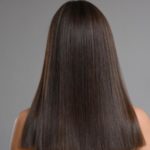Washing your hair daily is a personal hygiene habit, but many people mistakenly believe that it can lead to hair loss. So, is this true, and how often should you wash your hair? Let’s find out in the following article!
1 Does Washing Your Hair Frequently Cause Hair Loss?
Hair loss is a common occurrence, but excessive hair fall can worry people about their health and appearance. However, washing your hair frequently does not directly cause hair loss. The primary causes of hair loss are usually genetic factors, hormones, and nutrition…
Many people notice increased hair fall after washing their hair. But this is typically because hair goes through a natural shedding phase for regeneration. On average, we lose about 50-100 hairs per day, and new hair grows back. Washing your hair helps remove dirt, excess oil, and bacteria from the scalp, contributing to maintaining hair health and preventing issues like dandruff.
However, washing your hair too frequently can be detrimental. The protective layer of lipids that shield hair from environmental damage can be stripped away with excessive washing, leading to dry, frizzy, and brittle hair that is prone to breakage. Therefore, it’s essential to determine a washing frequency that suits your hair type and scalp condition.
To maintain healthy hair, focus on protecting your hair from environmental damage and providing adequate nourishment to your hair and scalp. Simultaneously, identify the exact cause of your hair loss to implement an appropriate treatment plan.
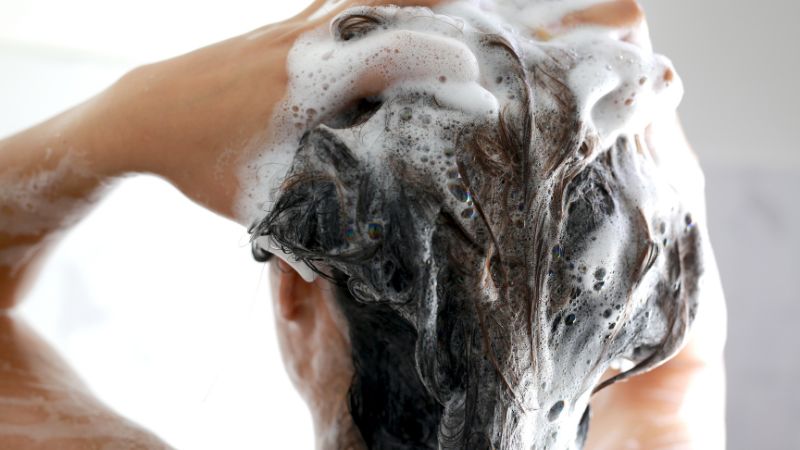 Does frequent hair washing cause hair loss?
Does frequent hair washing cause hair loss?
2 How Often Should You Wash Your Hair?
Everyone’s scalp condition is unique and influenced by androgen levels in the body. People with higher androgen levels tend to have oilier scalps and may require more frequent washing.
Hence, the frequency of hair washing should depend on your hair’s oiliness. If your scalp feels greasy, itchy, or emits an unpleasant odor, it’s time to wash your hair to get rid of the dirt and excess oil.
Apart from scalp type, the washing frequency is also influenced by the weather. Temperature and humidity directly impact the activity of the sebaceous glands on the scalp. Higher temperatures and humidity stimulate more oil production.
-
Oily hair: Can be washed daily to remove excess oil and keep the scalp fresh.
-
Normal or dry hair: Should be washed every other day or every 2-3 days to maintain natural moisture levels.
During summer, you may need to wash your hair more frequently due to increased sweat and dirt accumulation. Conversely, in winter, when the air is dry, reducing your washing frequency can prevent hair from becoming overly dry.
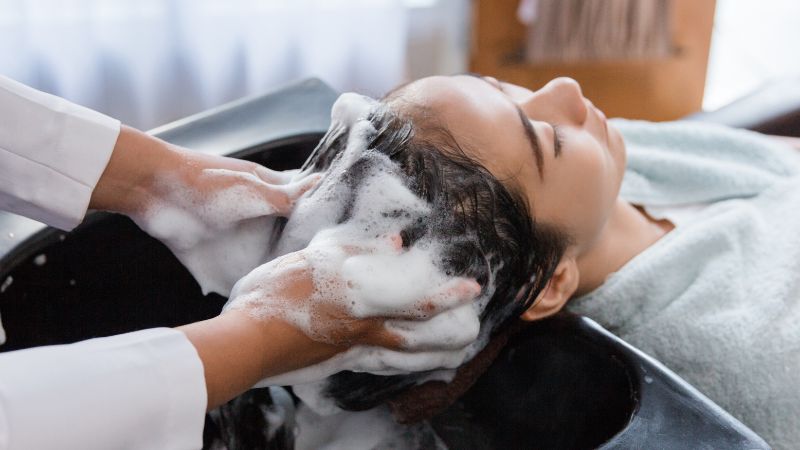 How often should you wash your hair?
How often should you wash your hair?
3 Should You Wash Your Hair in the Morning or at Night?
The ideal time to wash your hair depends on your lifestyle and personal preference. Each option has its pros and cons:
Washing hair in the morning:
-
Pros:
-
Hair feels bouncy and is easier to style.
-
It can enhance alertness and focus.
-
Saves time in the evening.
-
-
Cons:
-
Hair may become greasy by the afternoon.
-
Washing with wet hair can make you feel cold, especially in winter.
-
Washing hair at night:
-
Pros:
-
Removes dirt, excess oil, and sweat accumulated during the day.
-
Hair feels relaxed and softer.
-
Easier to brush and blow-dry hair before bed.
-
-
Cons:
-
Wet hair can be uncomfortable while sleeping.
-
Washing too late may disrupt sleep quality.
-
Recommendation:
-
Wash your hair when it feels dirty, or your scalp is sweaty or smelly.
-
Choose a shampoo and conditioner suitable for your hair type.
-
Avoid washing your hair too frequently or too infrequently.
-
Limit the use of heat styling tools.
-
Nourish your hair with appropriate hair care products.
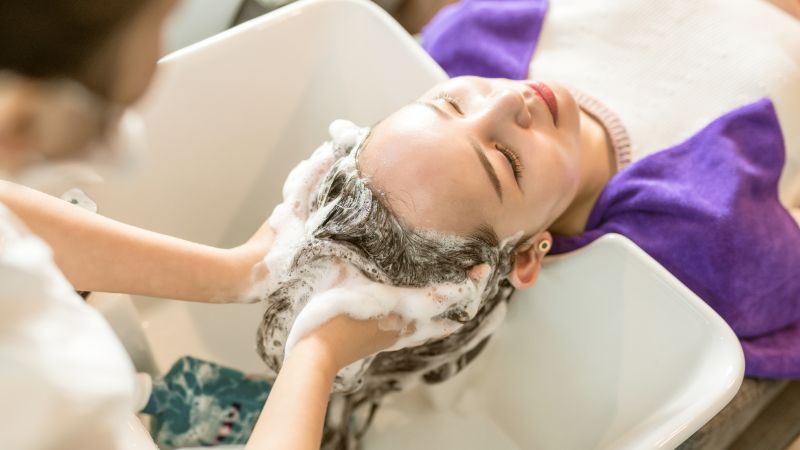 Morning or night hair washing?
Morning or night hair washing?
4 Ideal Water Temperature for Hair Washing
The water temperature for hair washing plays a crucial role in maintaining scalp and hair health.
-
Too-hot water: Can irritate the scalp, leading to dryness, itching, and flaking.
-
Too-cold water: May not effectively remove dirt and excess oil, and it can make your scalp susceptible to catching a cold.
Ideal water temperature for hair washing: Use warm water with a temperature ranging from 36°C to 38°C, similar to body temperature.
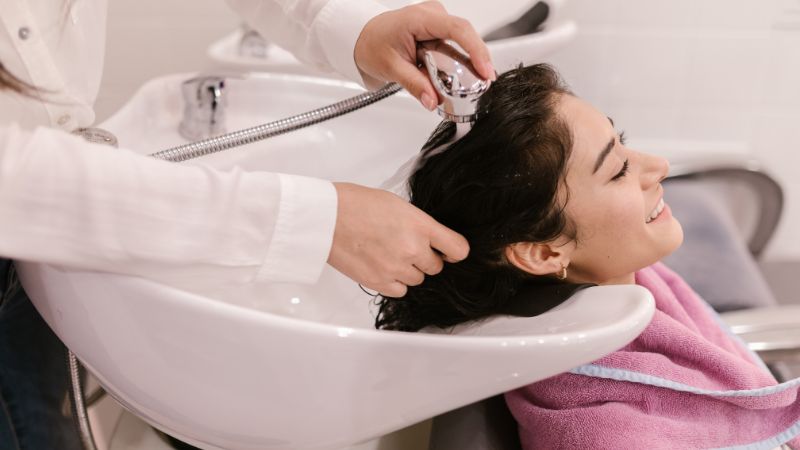 Ideal water temperature for hair washing
Ideal water temperature for hair washing
In addition to the above information, remember to maintain a balanced diet and a healthy lifestyle to ensure your hair’s health from within. We hope you always feel confident with your shiny, soft, and vibrant hair!
Source: Sức khỏe và Đời sống Newspaper



























